
This week on Belabored: Detroit blogger Marcy Wheeler discusses the largest municipal bankruptcy in American history. Plus fast food strikes, immigration reform, port truck drivers, and layoffs at Chicago public schools.
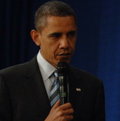
Obamacare will help all Americans in significant ways, yet it remains controversial. What will it take for the program to join Medicare and Social Security as a permanent part of America’s system of social insurance?

In the past week, two new stories of brutality have called China’s attention to the lawlessness of controversial “urban management” teams known as chengguan.
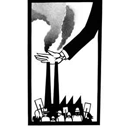
Environmental advocates face a question that has widespread implications for how we think about legislation, lobbying, mass movements, and social change: what do you do when an issue emerges as one of the most urgent matters of our time and, at the same instant, becomes firmly regarded as a political loser?

A new set of reality shows thrive on foreclosed property and unpaid bills; they promote a bargain-basement ethos where everything has a price, and where discovering and comparing those prices is a source of pleasure.

This week in Belabored: Special guest Lee Fang shares his insights into the resurgent right wing. Plus Chicago school closings, NLRB appointments, and strikes by low wage workers.
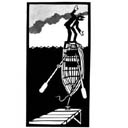
Because of its magnitude, the climate crisis can appear as the sum total of all environmental problems. But halting greenhouse gas emissions is a specific problem, the most pressing subset of the larger apocalyptic panorama. A radical approach to the crisis of climate change begins not with a long-term vision of an alternate society but with an honest engagement with the very compressed timeframe that current climate science implies. In the age of climate change, these are the real parameters of politics.
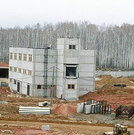
Russian and American nuclear scientists perceived the remarkable similarity of the workings of the Russian Ministry of Atomic Energy and the American Department of Energy. Now, as the opening of secret archives and closed cities has since set loose a flood of historical writing about atomic weapons programs, Kate Brown’s Plutopia offers a comparative study.

Can an energy system move off carbon-based fuels and nuclear energy at the same time? Will Boisvert argues that the German Energiewende shows why not—with a response from Osha Gray Davidson and a reply by Boisvert.
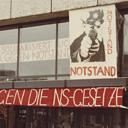
The German new Left was too close to the history it so desperately wanted to negate; it could not develop a sane or truthful relationship to the crimes and the cruelty of the Nazi era. Haunted by visions of the gas chambers, it believed that the only alternatives were the creation of a utopia or the recreation of Auschwitz.
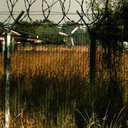
Violence has ebbed and flowed in Darfur for more than ten years now. Now, though the situation is almost totally absent from news coverage, the region teeters on the edge of a complete humanitarian collapse and uncontrollable violence.
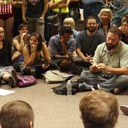
The financial crisis of 2007–2008 inspired a shallow but significant revival of Marxist analysis in academic life. A violent upsurge in theory, however, has corresponded to no particular insurrection in practice. If any radical left tendency has been responsible for inspiring action, the palm should go to Marxism’s historic antagonist on the Left—anarchism.
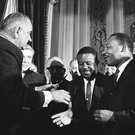
Legal precedent is against the recent Supreme Court decision to gut the Voting Rights Act. There is, however, a grim precedent for the Roberts Court in the Civil Rights Cases of 1883, which also turned the law on its head.

This week in Belabored: insurgent teachers in Newark and Washington, DC, teacher evaluations in New York, benefit cuts in North Carolina, and a settlement between Hyatt and UNITE HERE. Plus special guest Michelle Chen.
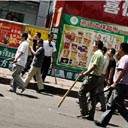
The violence that occurred in Urumqi, capital of the Xinjiang region in western China, on July 5, 2009 was both shocking and predictable. Four years later, what are the prospects for further unrest in Xinjiang?




















